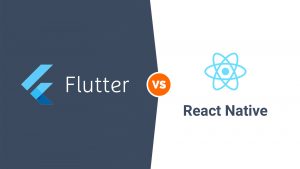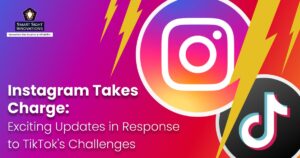 Developers working on iOS apps need to be professionals in Objective-C and Swift programming languages. On the other hand, Kotlin / Java, Python, and C++ are languages used by engineers for developing Android apps. However, instead of working with two different teams of engineers, some companies prefer opting for cross-platform solutions that use a single programming language. This is where Flutter and React Native come into the picture.
Developers working on iOS apps need to be professionals in Objective-C and Swift programming languages. On the other hand, Kotlin / Java, Python, and C++ are languages used by engineers for developing Android apps. However, instead of working with two different teams of engineers, some companies prefer opting for cross-platform solutions that use a single programming language. This is where Flutter and React Native come into the picture.
What’s Flutter?
Flutter Engine is a cross-platform opensource framework from Google launched in 2017. The mobile app SDK (software development kit) allows developers to create iOS and Android apps using object-oriented Dart programming language. Flutter apps promote extensive use of widgets. Almost all the aspects of layout, including stylistic and structural elements, are made by combining different widgets.
Developers can opt for the framework’s widgets that give a native-like feeling or create custom widgets.
Pros and Cons of Flutter
- The framework speeds up development due to its Hot Reload feature.
- It is not suitable for apps that need to use too many device-specific features.
- A limited number of developers are professionals in Dart programming language. So, finding and retaining them may not be easy.
- The file size of the apps developed with Flutter is something that keeps developers frustrated.
- Flutter apps can match the CPU usage of Native apps. But, in comparison to React Native, Flutter applications may use as much as 50 percent more memory.
- Official resources and packages provided by Google for Flutter keep on improving every day. But, the lack of third-party libraries forces developers to take extra efforts.
- Flutter’s adaptable widget sets, material design, and UI components do help the platform in scoring more points.
- Google’s Flutter Team does offer superb support, and the documentation available in the public domain is sufficient. However, community support is still nowhere near React Native.
- Flutter scores more when it comes to the setup process and automated checkup for system problems.
- Developers often highlight that Flutter apps perform better as compared to React Native ones as the latter uses JavaScript Bridge for interacting with native components. It negatively impacts the performance of RN apps.
- Flutter framework does not require third-party tools for testing and integration.
React Native Framework
Launched by Facebook in 2015, React Native is an open-source framework for building iOS and Android mobile applications.
Apps are written using JSX (XML-Esque markup), JavaScript, along with APIs from Java or Objective-C with the help of JavaScript Bridge. The framework communicates with the native modules using JavaScript Bridge. The highly reliable structure helps in creating solutions that look and work like native apps.
Pros and Cons of React Native
- The framework allows developers to reuse components and save time.
- The framework involves the use of native components as building blocks instead of a web component.
- Engineers need to put less effort and time on coding as they can create a single codebase and blend it accordingly while working on Android and iOS.
- Apps offer a smoother feel and faster loading times compared to using other hybrid models.
- Complex debugging, as well as configuration procedure, does make things a little bit difficult for engineers.
- Developers need to update the app after every two-three months.
- Some iOS and Android features are not supported by the platform yet.
- Testing and error-fixing remain easy in both React Native and Flutter frameworks due to the Hot Reload feature.
- React Native is used widely, so new developers can take over the existing projects and complete the same.
- Almost all the leading IDEs support the React Native framework.
- It is perfect for developers who wish to create cross-platform apps with JavaScript and need strong community support.
Which Brands Have Deployed Apps With React Native and Flutter Framework?
Several social networking apps, shopping, entertainment, educational, travel, and business apps use the Flutter platform. Some of the well-known ones are Alibaba (Xianyu app), KlasterMe, Google Ads, Flydirekt, Cryptomaniac Pro, Reflectly, Hamilton Musical, JD Finance, etc.
Companies from varied categories have used the React Native technology for their mobile applications. Airbnb, Facebook Ads Manager, Tesla, Skype, Amazon, Gyroscope, Bloomberg, UberEats, Instagram, Discovery VR are some of the notable examples. React Native’s list of clients is impressive and indicates the trust that it has managed to win since its launch.
If you are unsure about choosing between the React Native and Flutter framework, you should let an experienced team of engineers at the smartphone app development company make the decision.
Flutter and React Native Framework’s Future
Flutter
Flutter team announced the preview release for v1.14.6 on February 5 this year. It is the fastest-growing programming language. Initially, several companies preferred to develop prototype apps (Minimum Viable Product) with the framework. Now, they are using the platform for their primary apps.
Rich widgets and constant efforts to enhance Flutter would ensure it becomes the top choice of developers for cross-platform development this year. Google has grand plans for 2020 when it comes to Flutter. The search giant recently revealed that it intends to evolve Flutter to work with smartwatches, smart television, and Google Nest Hub intelligent displays.
React Native
Facebook ensures timely maintenance patches for the platform that dominates the mobile applications market and keeps on adding new fans every passing day. Businesses find it attractive as it can help in creating sophisticated applications that run smoothly. The project can be completed on-time with a small budget. The app development framework combines the native functionality with the speed and agility of web apps. The platform from Facebook surely won’t lose popularity in 2020.
A report released by the Allied Market research has pointed out that by 2023, the mobile applications market will cross the $300 Billion mark. Mobile apps are set to play a crucial role in every company’s selling strategy. You can get in touch with experts at Smart Sight Innovations to discuss your project needs and seek advice. The firm provides mobile app development services in India to clients in a variety of sectors.














